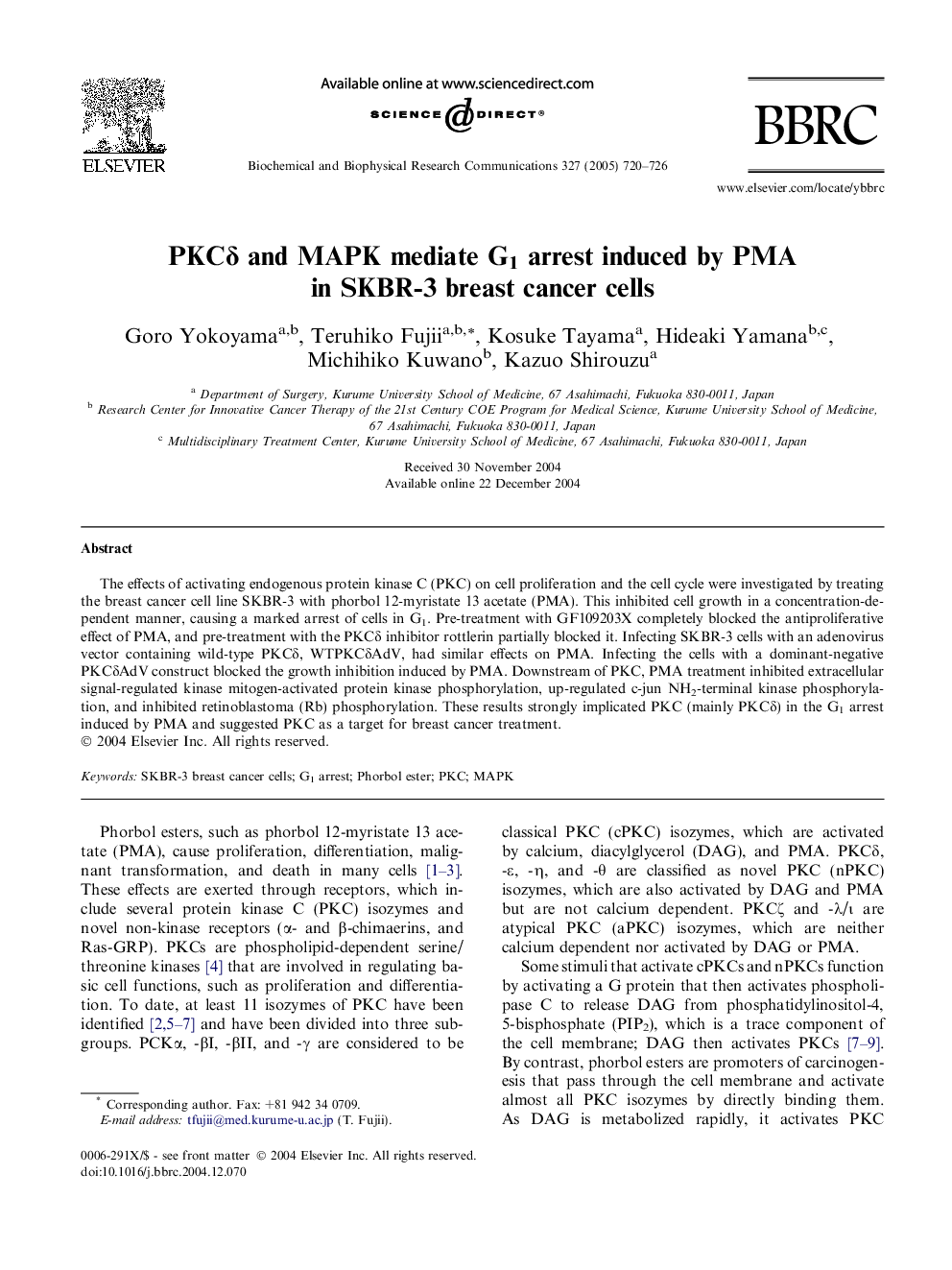| Article ID | Journal | Published Year | Pages | File Type |
|---|---|---|---|---|
| 10771465 | Biochemical and Biophysical Research Communications | 2005 | 7 Pages |
Abstract
The effects of activating endogenous protein kinase C (PKC) on cell proliferation and the cell cycle were investigated by treating the breast cancer cell line SKBR-3 with phorbol 12-myristate 13 acetate (PMA). This inhibited cell growth in a concentration-dependent manner, causing a marked arrest of cells in G1. Pre-treatment with GF109203X completely blocked the antiproliferative effect of PMA, and pre-treatment with the PKCδ inhibitor rottlerin partially blocked it. Infecting SKBR-3 cells with an adenovirus vector containing wild-type PKCδ, WTPKCδAdV, had similar effects on PMA. Infecting the cells with a dominant-negative PKCδAdV construct blocked the growth inhibition induced by PMA. Downstream of PKC, PMA treatment inhibited extracellular signal-regulated kinase mitogen-activated protein kinase phosphorylation, up-regulated c-jun NH2-terminal kinase phosphorylation, and inhibited retinoblastoma (Rb) phosphorylation. These results strongly implicated PKC (mainly PKCδ) in the G1 arrest induced by PMA and suggested PKC as a target for breast cancer treatment.
Keywords
Related Topics
Life Sciences
Biochemistry, Genetics and Molecular Biology
Biochemistry
Authors
Goro Yokoyama, Teruhiko Fujii, Kosuke Tayama, Hideaki Yamana, Michihiko Kuwano, Kazuo Shirouzu,
